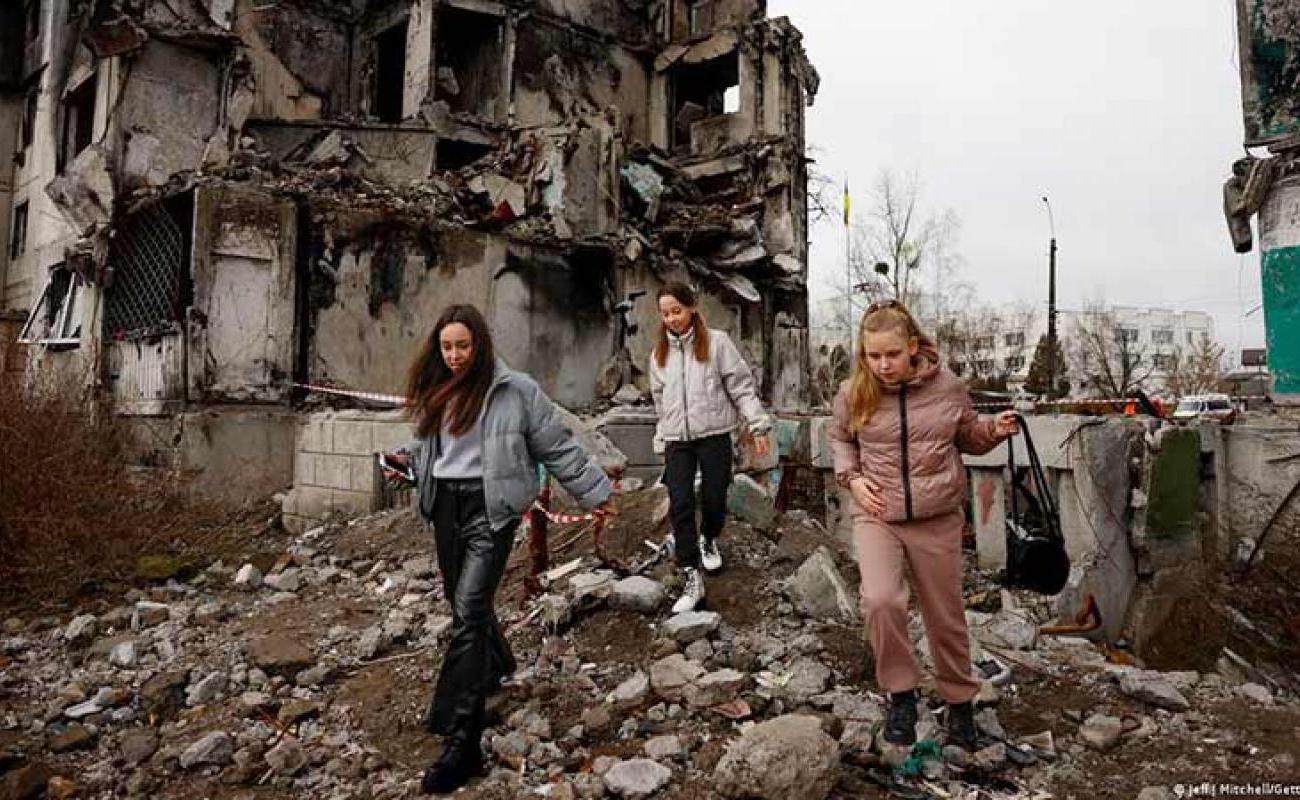Opinion: Russia's war in Ukraine will be long and protracted

Foreign Minister Sergey Lavrov recently stated that Russia has no plans to use nuclear weapons. Initially, Russia’s "will we or won't we" rhetoric about using the nuclear arsenal was used as an argument to keep NATO from interfering in the war.
President Vladimir Putin may not escalate, but to find a way out he would support a war of attrition rather than accept failure. Assuming that nuclear war is not envisaged — and I think that is unlikely given Russia's ability to use other, unconventional weapons of war — we have the clear prospect of a long and protracted war.
Experts assume three to four years. That assumption is a far cry from Putin's overbearing call for a blitzkrieg, which wanted to see a Russian victory parade four days after mobilization. Well, as you know, it didn't quite work out that way.
'The General In His Labyrinth'
At the political level, Putin is trying to influence the UN agenda. But that hasn't worked and he's increasingly turning into an isolated pariah in the Kremlin. We are reminded of the title of a book by Gabriel Garcia Marquez — "The General In His Labyrinth."
Putin holed up in the bowels of the Kremlin, sending his unconvincing foreign minister to deputize for him, delivering speeches to nonexistent audiences in the middle of nowhere. Even the Russian Foreign Ministry's repeated attempts to ingratiate itself with former colonial states in Africa, South America and Southeast Asia have not ended in success. The majority of African states, which mistakenly view the war as a European theater and in some cases depend on Russian arms or Russian diplomacy for their regional disputes, have seen through Russia's fake news narratives and its attempts to weaponize food and fertilizer and are demanding Russian de-escalation as a question of regional food security.
The threat of nuclear weapons reflects the Kremlin's entry into a realm of political delusion that borders on the pathological, a kind of delirium, and is nothing more than the presentation of a narrative contradicted by the reality on the ground. The mobilization of troops in recent weeks are another sign that Russia is losing.
Control of society is faltering
For 22 years, Putin has had an implicit pact with the Russian people: Don't make political waves and you'll live comfortably. This pact is coming apart at the seams. His mobilization order is the straw that broke the camel's back, which is why more and more Russians are either bravely taking to the streets and speaking truth to power, or running to the borders to flee the country. Under these circumstances, a Russian victory is practically impossible.
Putin's mobilization policy is evidently not a solution to his military problems but instead symbolizes a new, though faltering, level of control over society in an atmosphere in which the war against Ukraine is leading to a sapping of central power in Russia. The growing discord across the country is finally weakening Putin's position.
Russia's redefinition of the world order
The fundamental question for Europe in the current war is how to restore respect for international law in all its multiple dimensions, earth, sea, space. The focus is on the stabilization and reconstruction of Ukraine as a cornerstone to the strengthening of prosperity and peace around the world. And maybe that's why French President Emmanuel Macron felt that "one of the key issues we need to address — as President Putin has always said — is the fear that NATO will be right at their [Russia's] doors, and the use of weapons that could threaten Russia."
This is obviously not a justification for Putin's war, but instead a way to oppose Putin's invasion while examining whether Russia's security concerns have any basis in reality. In our view, while this is a reasonable premise, it does not answer the real question: Why did the war start and where is it going?
Russia didn't invade Ukraine out of fear of NATO expansion — the Minsk Accords gave Russia the guarantees it needed. It was fueled by the need to undertake a foreign enterprise to hide or excuse domestic instability and decline — what the great Greek poet Constantine P. Cavafy called "waiting for the barbarians."
Russia wants to redefine the global order. And that is why this war persists and why it will be difficult to end. It is impossible to allow Russia to exercise regional hegemony, while maintaining Ukraine's territorial integrity.
Dr. Cristina Vanberghen teaches at the Universite Libre De Bruxelles and acts as a senior expert at the European Commission.
